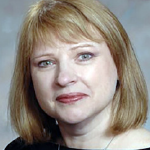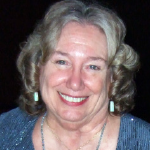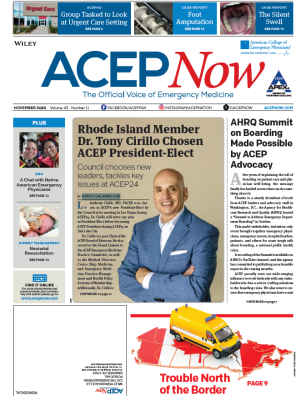
ACEP members weigh in on how they got ready for retirement and how they’re spending their “leisure” time
In a recent letter to ACEP Now, an ACEP member raised some important questions about career transitions:
Explore This Issue
ACEP Now: Vol 37 – No 06 – June 2018I am 66 years old and ready to retire, but I am not sure how to go about it.
I’ve had a great career so far. After working 12 years as a registered nurse (part of it in the Alaskan bush), my family (wonderful husband and three super kids) and I started medical school in 1986 (when I was 34). I was hooked by emergency medicine and decided to make it my life’s work. I did what so many had done—worked two and three jobs for years and years, taking every course I could until I could “grandfather” into becoming FACEP. I served a year as Washington ACEP’s President and two years as a national Councillor for ACEP. After working at a 45,000-per-year emergency department, I “semi-retired” after nearly 20 years and have worked in a rural,10,000-per-year emergency department over the last seven years.
How will life with my husband of 44 years look and how will my career look in retirement? Should I retire active for licensure? What should I do about my DEA? Once I close the door, so to speak, is it irrevocable? What would a “minimum practice” look like? It‘s a little daunting to give up my clinical “life,” so to speak. I know many of us baby-boomers face similar life decisions.
—Merry Alto, MD, FACEP
Spokane, Washington
ACEP Now polled several retired and semi-retired ACEP members for their words of wisdom on how to transition from a full-time clinical career and how to keep doing what you love in retirement. Here are their tips.
 First and foremost, during your formative practicing years, don’t neglect your family and health. Once you retire, your family often assumes primary focus. A lifelong exercise program will put you in great position to take full advantage of family and leisure time.
First and foremost, during your formative practicing years, don’t neglect your family and health. Once you retire, your family often assumes primary focus. A lifelong exercise program will put you in great position to take full advantage of family and leisure time.
Second, actively engage in professional activities outside of clinical practice. Emergency physicians have demonstrated that they have all the right attributes in fields as diverse as hospital administration, entrepreneurship, and quality assurance. Seek out administrative opportunities within your ED practice that will allow professional growth as your clinical activities wind down.
—Jeffrey Bettinger, MD, FACEP
Managing member,
Bettinger, Stimler & Associates, LLC
Pinecrest, Florida
 Start planning your well-thought-out retirement program early, perhaps a decade in advance. Do not just “retire” at a specific date without a well-developed plan. Do not underestimate that a significant portion of a physician’s sense of self-worth is the physician-patient relationship; it’s what makes us a “doctor.” Consider fading out of clinical practice gradually, because it is very difficult for most physicians to suddenly and completely cease patient interactions. Gradually reducing clinical shifts while ramping up potential new considerations, or a just gradual increase in desired nonclinical activities, will smooth your transition.
Start planning your well-thought-out retirement program early, perhaps a decade in advance. Do not just “retire” at a specific date without a well-developed plan. Do not underestimate that a significant portion of a physician’s sense of self-worth is the physician-patient relationship; it’s what makes us a “doctor.” Consider fading out of clinical practice gradually, because it is very difficult for most physicians to suddenly and completely cease patient interactions. Gradually reducing clinical shifts while ramping up potential new considerations, or a just gradual increase in desired nonclinical activities, will smooth your transition.
Consider your best-loved personal interests beyond clinical practice, and investigate alternative future activities both within and outside of medicine. There are only so many days you can sit on a beach, read a book, play golf, travel, etc., and continuing medical and nonmedical intellectual pursuits will substantially maintain your physician-developed sense of self-respect and enhance your retirement enjoyment. With a well-developed and gradually implemented plan, you’ll be surprised at how enjoyably active your retirement from clinical practice can become!
—David E. Wilcox, MD, FACEP
Medical director consultant
South Glastonbury, Connecticut
 Early in my career, a mentor encouraged me to read and to and to reflect upon the poem, “The Road Not Taken” by Robert Frost. Just as Frost’s traveler did, “I kept the first for another day.” I encourage colleagues not to lose sight of the other road and to ask themselves frequently, “What would I have studied if I had not chosen medicine? What mysteries of life would I like to understand?” When one often reflects on such questions, it will be easy to identify an opportunity to choose “the other path” in retirement.
Early in my career, a mentor encouraged me to read and to and to reflect upon the poem, “The Road Not Taken” by Robert Frost. Just as Frost’s traveler did, “I kept the first for another day.” I encourage colleagues not to lose sight of the other road and to ask themselves frequently, “What would I have studied if I had not chosen medicine? What mysteries of life would I like to understand?” When one often reflects on such questions, it will be easy to identify an opportunity to choose “the other path” in retirement.
— Susan Nedza, MD, MBA, FACEP
Candidate, Masters in Liberal Arts
University of Chicago
 Retirement is not about stopping anything! It is about pursuing activities you enjoy, including those work activities you enjoy most. So sharpen your focus to make room for interests you’ve long deferred. Be more physically active than you had time for previously. Take care of yourself to stay healthy. Keep in touch, or reconnect, with those you love. If you’ve planned your finances, live that financial plan and enjoy the freedom of not having to work solely to pay bills. Achieve real work-life balance and make your trade-offs wisely. Only so many hours exist in each busy retirement day, and only so many days remain in each retirement life. Be genuinely grateful for every one!
Retirement is not about stopping anything! It is about pursuing activities you enjoy, including those work activities you enjoy most. So sharpen your focus to make room for interests you’ve long deferred. Be more physically active than you had time for previously. Take care of yourself to stay healthy. Keep in touch, or reconnect, with those you love. If you’ve planned your finances, live that financial plan and enjoy the freedom of not having to work solely to pay bills. Achieve real work-life balance and make your trade-offs wisely. Only so many hours exist in each busy retirement day, and only so many days remain in each retirement life. Be genuinely grateful for every one!
Although I’ve never thought so, perhaps, I am “retired” already … just not under a more traditional definition. Cheers!
—Randall B. Case, MD, MBA, MSE, FACEP
President, Healthrecord Solutions, LLC
Dallas/Fort Worth, Texas
 Find something that you can do in retirement that allows you to put to good use some of the knowledge you gained in your practice, to keep your hand in the game, for several years after you retire from clinical practice. In order to have a niche, you need to start working toward that goal about 10 years prior to retirement, gaining expertise and experience in the medical niche you think might be interesting. Unless you plan to do part-time clinic or urgent care work, don’t expect to actively use your clinical skills in this post-retirement arena, as they will deteriorate with lack of use, but keep your “special knowledge” honed in the niche area you hope to become expert in. If you can earn some money at it, this keeps you from having to tap your IRA for your entire post-retirement income. There’s nothing like a little fresh money coming in. Take some courses first to find your niche if you are uncertain, then bone up and begin using these skills or knowledge base while you are still practicing, substituting this time for a couple of shifts a month if you have that flexibility. If you wait until you retire to acquire these niche skills or this knowledge base, you will have blown it. For example, if you want to write medical mystery novels in retirement, start writing years before you retire from ED practice.
Find something that you can do in retirement that allows you to put to good use some of the knowledge you gained in your practice, to keep your hand in the game, for several years after you retire from clinical practice. In order to have a niche, you need to start working toward that goal about 10 years prior to retirement, gaining expertise and experience in the medical niche you think might be interesting. Unless you plan to do part-time clinic or urgent care work, don’t expect to actively use your clinical skills in this post-retirement arena, as they will deteriorate with lack of use, but keep your “special knowledge” honed in the niche area you hope to become expert in. If you can earn some money at it, this keeps you from having to tap your IRA for your entire post-retirement income. There’s nothing like a little fresh money coming in. Take some courses first to find your niche if you are uncertain, then bone up and begin using these skills or knowledge base while you are still practicing, substituting this time for a couple of shifts a month if you have that flexibility. If you wait until you retire to acquire these niche skills or this knowledge base, you will have blown it. For example, if you want to write medical mystery novels in retirement, start writing years before you retire from ED practice.
—M. Myles Riner, MD, FACEP
Health care consultant, reimbursement expert witness, and author of The Fickle Finger blog
Incline Village, Nevada
 I gave up practicing medicine for the third and final time at age 70. I was always convinced I would die seeing patients in a Maine emergency department, but financial preparation made elective retirement possible. Arthritic knees forced my ED retirement in 2001. I missed practicing so much that, three years later, I found shorter shifts in an urgent care center.
I gave up practicing medicine for the third and final time at age 70. I was always convinced I would die seeing patients in a Maine emergency department, but financial preparation made elective retirement possible. Arthritic knees forced my ED retirement in 2001. I missed practicing so much that, three years later, I found shorter shifts in an urgent care center.
Tip #1: Do not give up your licenses, boards, or CME yet; reassess each renewal and consider alternative clinical work.
Tip #2: If you want to keep “working” turn your nonclinical expertise into a paying/part-time “job.” My husband and I left Maine, where I knew “everyone,” after 30 years. I did urgent care, attended state and national ACEP meetings and went to local medical CME, but did not integrate well. I knew no one in the emergency department when my husband had his myocardial infarctions and cerebrovascular accident, couldn’t recommend a surgeon when my son ruptured his appendix, didn’t know the orthopod who casted my granddaughter, and allowed strangers to remove my cancer and perform my endarterectomy. I have experienced medical isolation.
Tip #3: If you like what you are doing, keep doing it. Don’t tell anyone you are retired—they might stop calling you to work.
—Pamela P. Bensen, MD, MS, FACEP
President, Medical Education Programs
Buffalo Junction, Virginia
Pages: 1 2 3 4 | Multi-Page




No Responses to “Seven ACEP Members Share Retirement Tips”